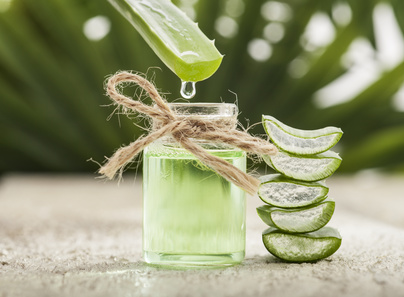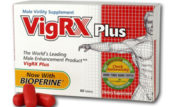 I can’t wear rubber gloves when I wash the dishes. I need to steer clear of many harsh soaps, industrial cleaners and bleached fabrics too. The reason? Eczema – a skin condition caused by inflammation and the most common dermatitis, which makes skin red, itchy, and just plain miserable to live with.
I can’t wear rubber gloves when I wash the dishes. I need to steer clear of many harsh soaps, industrial cleaners and bleached fabrics too. The reason? Eczema – a skin condition caused by inflammation and the most common dermatitis, which makes skin red, itchy, and just plain miserable to live with.
I guess I can take a little solace in knowing that I’m hardly alone in my struggles with skin. Lots of people have eczema; roughly 15 million in just in the United States, or about 3% of the population. That number is higher, between 10 and 20%, for children, though most of them will outgrow their skin sensitivities before they turn ten.
While eczema’s not going to kill anyone, it’s something to take seriously. Your skin is your largest organ, after all, and a visual guide to your inner workings. Many researchers believe the immune system is a leading cause of eczema. That’s something you’ll want to explore with your doctor.
What is Eczema?
Eczema is the most common dermatitis. The latter simply means skin inflammation; excema is a specific form of dermatitis, characterized by itching, swelling, redness and dry skin. To put it a little simpler, you can probably say that dermatitis is an acute condition, and excema is its chronic, more persistent cousin.
Some people call it atopic dermatitis.
Symptoms of eczema can vary but it just about always causes itching. When the itching precedes a rash, the latter usually occurs on the face, back of the knees, wrists, hands or feet. In fair skinned patients, these symptoms might appear dry, thickened or scaly. In darker people, these symptoms might make the skin look lighter or darker.
Risk Factors For Eczema
Eczema runs in families. Specific genes appear to make certain people have sensitive skin in which moisture escapes and germs come in. An overactive immune system is another likely culprit behind eczema, which makes sense considering it’s also responsible for a more aggressive skin disease, called psoriasis, which is a life-long condition and quite severe.
Some factors can make eczema worse, including:
stress
contact with irritating substances
heat and sweat
cold, dry climates
colds or upper respiratory infections
dry skin
While eczema triggers are unique to each patient, latex, woolen or synthetic fabrics, soaps, detergents and common household products are among the more common offenders that can aggravate the skin.
There is no cure for eczema, but most patients find they can manage it with medical treatments and by avoiding irritants. Some evidence suggests that herbals may help eczema too, which we’ll discuss later in this article.
How to Prevent Eczema Flare-Ups
Know thy triggers. Whether that’s food, heat, cold, contact with specific materials, or likely a combination thereof, it’s important to watch your symptoms and note what you were doing when they got out of hand.
As a starting point, you might reduce eczema with the following guidelines:
moisturize often
avoid dramatic changes in heat, cold or humidity
avoid sweating
reduce stress
avoid materials that can scratch, like wool
avoid harsh soaps and detergents
monitor foods that trigger your symptoms
 Keep in mind that triggers can develop with time. You might find it helpful to keep a journal of your symptoms, how and when they occur and keep an open communication with your doctor.
Keep in mind that triggers can develop with time. You might find it helpful to keep a journal of your symptoms, how and when they occur and keep an open communication with your doctor.
As well, it’s not uncommon for eczema patients to have food allergies, meaning that a healthy diet may reduce redness and allergic reactions. Start with some basic steps: avoid eggs, dairy, peanuts, soy, wheat, citrus and tomatoes, at least until you further identify which foods trigger your symptoms.
OTC and Prescription Treatment For Eczema
A pediatrician, dermatologist or primary care provider can diagnose eczema. A doctor can often do this visually, with a physical exam and some questions. Because eczema is linked to the immune system, he/she may also perform some allergy tests to identify possible triggers.
Your goal for eczema treatment is to reduce itching, which can lead to infection. You’ll therefore want to moisturize your skin with a lotion or cream and apply it when your skin is damp, like after a bath.
Cold compresses may help reduce itching as well.
Over the counter products like hydrocortisone 1% cream, or prescription creams and ointments with corticosteroids may reduce inflammation. If the affected area becomes infected, your doctor may also prescribe antibiotics to kill the offending bacteria.
Other OTC and prescription treatments for eczema include antihistamines, tar treatments, phototherapy (ultraviolet light applied to the skin) and a drug called cyclosporine for patients with more problematic eczema that does not improve with other treatments.
The FDA has also approved two drugs, called topical immunomodulators (TIMS) for mild to moderate eczema. These drugs alter the immune system’s response to flare-ups and are among the most effective eczema drugs to date. However, the FDA has warned they may also increase risk of cancer and should only be used on a short-term basis.
Children under two should not use either of these drugs.
Dietary Supplements That Might Help Eczema
Although fish can trigger allergic reactions in some people, they’re also a rich source of omega-3 fatty acids and may help people with eczema. Fresh vegetables and whole wheats might also help, along with dietary supplements including:
Fish Oil: This shows promise. In one study, researchers found that patients who took fish oil equal to 1.8 grams of EPA (an omega-3 fatty acid in most fish) significantly reduced inflammation. The benefit may be that fish oil reduces a substance called leukrotriene B4, which plays a role in eczema inflammation.
Speak to your doctor before taking fish oil supplements if you’re on blood-thinning medications or if you’re interested in a high dose. For the latter, choose a fish oil that removes most of the vitamin A, which can be toxic in high quantities.
Probiotics (bifidobacteria and lactobacillus): These ‘friendly’ bacteria that occur naturally in the gut perform many functions. Among them, they kill dangerous bacteria, increase nutrient absorption and strengthen the immune system. Some evidence suggests they may also reduce eczema symptoms, though more research is required.
You can get probiotics from dairy sources like yogurt or soft cheese, miso soup or a probiotics supplement like that in Digestive Science Intensive Colon Cleanse.
Evening Primrose Oil: Another natural supplement that frequently pops up on many a skin list, there is evidence that evening primrose oil may reduce itching related to eczema. Patients taking blood-thinning medications should speak with their doctor before taking primrose oil, however, and ditto for anyone interested in a high dose.
Borage Oil: Like evening primrose oil, borage oil comes with a healthy wallop of essential fatty acid GLA (between 500 and 900 mg per day) – a natural anti-inflammatory. The same health considerations apply with borage oil. Speak with your doctor if you’re on blood-thinners or if you seek the higher dose of borage oil supplements.
Vitamin C (1,000 mg, 2-4 times a day): Anyone ever told you to drink your OJ when you had a cold? That’s because vitamin C acts as an antihistamine, which may help people with eczema too.
Herbs That Might Reduce Eczema
Want to try a little ancient wisdom to reduce eczema and that terrible itching? There’s evidence suggesting that herbals can help, whether as a dried extract (capsule, powder or tea), glycerite (glycerine extract) or tincture (alcohol extract). The best way to do this often to make an tea with the following herbals:
Milk thistle seed
Myrrh
Licorice root
Ginger
Borage
Comfrey
Stinging nettle
Cleavers
Heartsease (Viola)
Red clover
To make an herbal tea, mix one tsp herb for each cup of hot water. Steep leaf or flowers covered for five to ten minutes, and ten to twenty minutes for herbs. Drink two to four cups a day.
 You may also find that herbal creams can help eczema, with chamomile, chickweed, licorice root or witch hazel. Herbal chamomile creams appear to be among the most effective herbal creams for excema. St. John’s Wort creams also show potential, beating a placebo cream in a clinical double blind study.
You may also find that herbal creams can help eczema, with chamomile, chickweed, licorice root or witch hazel. Herbal chamomile creams appear to be among the most effective herbal creams for excema. St. John’s Wort creams also show potential, beating a placebo cream in a clinical double blind study.
Herbals are generally safe, but be sure to speak with your physician regarding any concerns you might have about interactions with existing conditions or medications. More than likely, you’ll probably find they’re safer, and more suitable for ongoing use than eczema prescription creams and medication.




